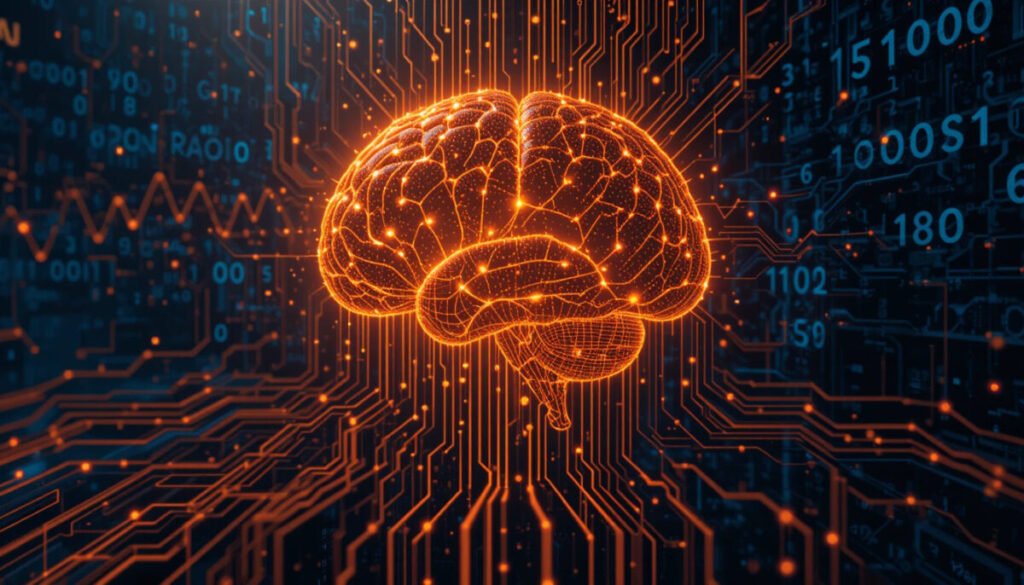AI Insights
New Michigan laws ban AI-generated pornography

It’s now illegal in Michigan to create images via artificial intelligence that falsely portray a specific person in sexual activity or situations.
Gov. Gretchen Whitmer signed the package of two bills Ton uesday that are meant to protect people from sexual harassment or exploitation over such illustrations.
House Bill 4047, the Protection from Intimate Deep Fakes Act, and House Bill 4048, its companion bill, sponsored by state Representatives Matthew Bierlein (R-Vassar) and Penelope Tsernoglou (D-East Lansing), prohibit the creation and distribution of a style of imagery known as “deep fakes” when it depicts sexual content involving a specific individual.
Deep fakes use artificial intelligence technology to create videos, pictures or audio clips of activity that did not actually happen, but appear to be realistic. State officials said fake videos of this type have been increasingly used to portray sexual situations that did not actually happen.
In situations where the incident is considered a misdemeanor, the penalty will include up to one year in jail and/or a fine of up to $3,000. Where the incident is considered a felony, the penalty will include up to three years in prison and/or a fine of up to $5,000.
In addition, the person who was depicted in nonconsensual intimate deep fake imagery has the option to pursue civil action under the new laws.
“Michigan is making it clear that non-consensual intimate deepfakes have no place in our state. This law protects the dignity and privacy of every citizen and gives victims the tools they need to seek justice,” Bierlein said. “Technology should be used to improve lives, not to exploit them — and today we’ve taken an important step to ensure that.”
AI Insights
North Carolina Governor Creates AI Council, State Accelerator

North Carolina Gov. Josh Stein on Tuesday signed an executive order (EO) creating the state’s Artificial Intelligence Leadership Council, tasked with advising on and supporting AI strategy, policy and training. The move comes just more than a year after the state published its AI responsible use framework.
Executive Order No. 24: Advancing Trustworthy Artificial Intelligence That Benefits All North Carolinians sets the direction for the council and creates the North Carolina AI Accelerator, which will serve as a hub within the N.C. Department of Information Technology (NCDIT). Council duties include creating a state AI road map; recommending AI policy, governance and ethics frameworks; guiding the accelerator; addressing workforce, economic and infrastructure impacts; and issuing recommendations for AI and public safety. Its first report is due June 30, 2026.
“AI has the potential to transform how we work and live, carrying with it both extraordinary opportunities and real risks,” Stein said in a news release. “Our state will be stronger if we are equipped to take on these challenges responsibly. I am looking forward to this council helping our state effectively deploy AI to enhance government operations, drive economic growth and improve North Carolinians’ lives.”
State CIO and NCDIT Secretary Teena Piccione will co-chair the council alongside state Department of Commerce Secretary Lee Lilley. The governor named 22 additional members from the public and private sectors. They include technology leaders, educators, state legislators and state agency representatives such as David Yokum, chief scientist of the Office of State Budget and Management. Vera Cubero, emerging technologies consultant for the N.C. Department of Public Instruction, and Charlotte CIO Markell Storay are among the appointees, each of whom will serve a two-year term.
“I am honored to chair this council dedicated to strategically harnessing the exponential potential of AI for the benefit of North Carolina’s people, businesses and communities,” Piccione said in the release. “The AI Accelerator, along with our other initiatives, puts us in a strong position to implement swift and transformative solutions that will not only position North Carolina at the forefront of technological innovation but also uphold the latest standards of data privacy and security.”
The AI Accelerator will serve as the hub for AI governance, research, development and training. It is housed in the NCDIT, where staff will develop an AI governance framework, risk assessment and statewide definitions for AI and generative AI, according to the EO. When it comes to AI, Piccione sees significant potential for its use in government, identifying use cases in areas including procurement, fraud detection and cybersecurity, she told Government Technology earlier this year.
The state, like others, has been accelerating its AI moves of late. NCDIT named its first AI governance and policy executive this year, the University of North Carolina has been working with faculty to address AI in classroom settings, and some state agencies are looking at ways to safely implement chat and other services. North Carolina now joins other states that have appointed councils; are working toward ethical governance; and are wrestling with data centers, AI use and how it impacts energy use, also mentioned in the EO.
AI Insights
5 concerns raised during House hearing on health AI

The growing influence of artificial intelligence in health care was on display Wednesday as House lawmakers peppered invited witnesses with pointed questions about how technology might influence seemingly disparate topics like drug development, experimental Medicare models, and teen mental health.
The hearing description by the Energy and Commerce Committee’s health subcommittee promised a broad examination of the potential to advance American health care with AI, and members took the opportunity to dive into the topics closest to their interests. The questions over more than three hours revealed possible directions for policy as lawmakers consider whether — and how — to pass laws regulating AI’s use in health care.
Here are five concerns that came up.

This article is exclusive to STAT+ subscribers
Unlock this article — and get additional analysis of the technologies disrupting health care — by subscribing to STAT+.
Already have an account? Log in
AI Insights
HBCU rivals team up to launch $2.2M machine learning project

(PVAMU) – As Prairie View A&M University and Texas Southern University prepared to face off in theLabor Day Classic, the two rivals were also joining forces off the field. Together, they’re leading a $2.2 million research project that uses artificial intelligence to speed up the discovery of new materials — a breakthrough with the potential to transform manufacturing and defense technology.
The project, funded by the U.S. Department of Defense’s Air Force Office of Scientific Research, establishes the Center for Scientific Machine Learning for Material Sciences. Texas Southern is leading the grant, with Prairie View A&M receiving $600,000 to guide a major part of the work. They are joined by Texas A&M University and the University of Michigan.
At TSU, the project is led by Dr. Yunjiao Wang, principal investigator, and Dr. Daniel Vrinceanu, co-principal investigator. At PVAMU, the effort is headed by Dr. Noushin Ghaffari, principal investigator, and Dr. Lin Li, co-principal investigator. Together, these scientists are building advanced machine learning tools to predict, optimize, and simulate new materials with greater speed and accuracy.
So what does this research mean? Materials science is the study of how everyday materials, such as metals, ceramics, and polymers, can be designed or improved for use in products like airplanes, cars, medical devices, and electronics. Machine learning, a type of artificial intelligence, allows computers to recognize patterns in massive sets of data and make predictions. By combining the two, researchers can discover better, stronger, and lighter materials faster than ever before.
At the center of this work is the electron beam powder bed fusion (E-Beam) platform at Texas A&M University, a state-of-the-art 3D printing technology for metals managed in Dr. Mohsen Taheri’s lab. By pairing this equipment with data from sensors and advanced computer models, including deep neural networks, the team aims to predict how materials will behave and perform long before they’re ever produced.
Beyond advancing science, the project is designed to open doors for students. Both Prairie View A&M and Texas Southern will provide hands-on research experiences, summer workshops, and mentorship to prepare the next generation of engineers and data scientists. These opportunities are especially critical for Historically Black Colleges and Universities (HBCUs) and Minority-Serving Institutions (MSIs), where representation in high-tech research fields is growing but still limited.
So, while PVAMU and TSU may battle it out on the gridiron, they’re proving that when it comes to innovation and education, they’re playing on the same team.
-

 Business5 days ago
Business5 days agoThe Guardian view on Trump and the Fed: independence is no substitute for accountability | Editorial
-
Tools & Platforms3 weeks ago
Building Trust in Military AI Starts with Opening the Black Box – War on the Rocks
-

 Ethics & Policy1 month ago
Ethics & Policy1 month agoSDAIA Supports Saudi Arabia’s Leadership in Shaping Global AI Ethics, Policy, and Research – وكالة الأنباء السعودية
-

 Events & Conferences4 months ago
Events & Conferences4 months agoJourney to 1000 models: Scaling Instagram’s recommendation system
-

 Jobs & Careers2 months ago
Jobs & Careers2 months agoMumbai-based Perplexity Alternative Has 60k+ Users Without Funding
-

 Education2 months ago
Education2 months agoVEX Robotics launches AI-powered classroom robotics system
-

 Funding & Business2 months ago
Funding & Business2 months agoKayak and Expedia race to build AI travel agents that turn social posts into itineraries
-

 Podcasts & Talks2 months ago
Podcasts & Talks2 months agoHappy 4th of July! 🎆 Made with Veo 3 in Gemini
-

 Podcasts & Talks2 months ago
Podcasts & Talks2 months agoOpenAI 🤝 @teamganassi
-

 Education2 months ago
Education2 months agoMacron says UK and France have duty to tackle illegal migration ‘with humanity, solidarity and firmness’ – UK politics live | Politics





















